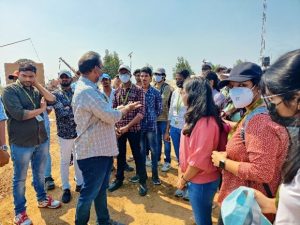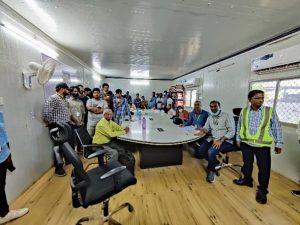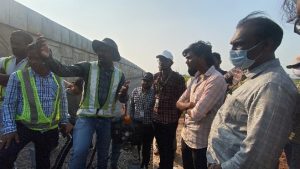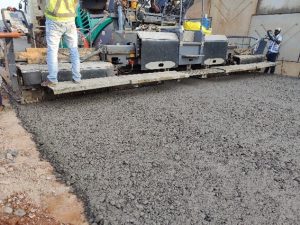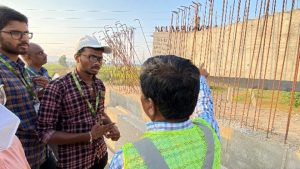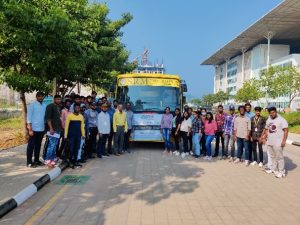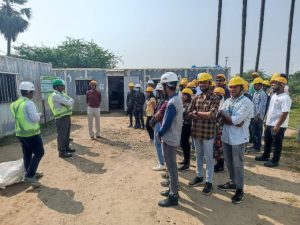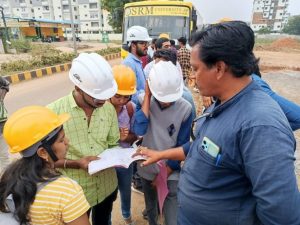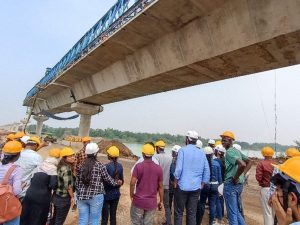All Management Events
- Innovative University of the Year 2022: SRM University-AP bestowed with the title of honour January 17, 2023
 SRM University-AP has been crowned as Innovative University of The Year -2022 by Academic Insights Magazine in recognition of the commendable contributions the university has made towards society and the educational fellowship. This title of honour is an annual recognition programme for private universities, which have stood out among the rest in the previous year in imbibing students with quality education and ethical values.
SRM University-AP has been crowned as Innovative University of The Year -2022 by Academic Insights Magazine in recognition of the commendable contributions the university has made towards society and the educational fellowship. This title of honour is an annual recognition programme for private universities, which have stood out among the rest in the previous year in imbibing students with quality education and ethical values.SRM University-AP has been embodying absolute innovation across all the disciplines and schools of the university, which is a laudable quality among the new-age universities of the country. Universities vary widely in their innovation maturity levels, and there is a substantial knowledge and experience gap within and across institutions. SRM AP is credited as the notable exception for the pathbreaking innovations made in the higher education sector. The editorial team at The Academic Insights has conducted rigorous research on various factors to choose the university of the year, with many universities participating yearly.
Continue reading → - A Critical Analysis of Solid Waste Microplastics January 10, 2023
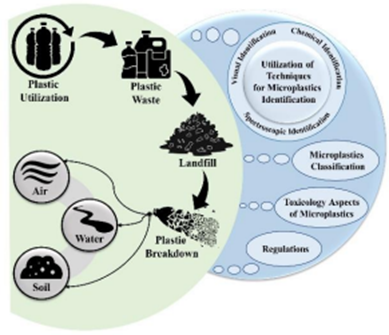
Solid waste is primarily an overlook source of Microplastics that contribute to a delirious amount of pollution to the environment. Thus, a clear understanding of the occurrence and degradation pathways of solid waste microplastics is critical to develop exhaustive control strategies. Dr Deblina Dutta, Assistant Professor, Department of Environmental Science, has published a paper titled, “An insight on sampling, identification, quantification and characteristics of microplastics in solid wastes” in the Q1 journal Trends in Environmental Analytical Chemistry, having an Impact Factor of 13.62.
Abstract of the Research
Microplastics (MPs) have attracted wide attention worldwide as a remarkable pollutant. While MPs spread throughout several complex environmental matrices, various experiments have been preliminarily concentrated on aquatic ecosystems. Terrestrial sources namely solid waste-origin have remained unexplored, although they contribute largely to the origin of aquatic microplastics. Simultaneously, terrestrial systems under human activity, like healthcare units, are likely to be polluted by various plastic ingredients. Solid waste MPs sources primarily include sanitary landfilling, food waste, wastewater treatment end-product (sludge), tire wear, textile washing and paint failure. These microplastics cause adverse impacts on the ecosystem, environment, and health. Accordingly, the present study addressed solid waste MPs’ occurrence and sources, identification, quantification, characterisation, fate, and degradation pathways for developing comprehensive management strategies following the principles of a circular economy.
In particular, this paper critically demonstrated solid waste MPs sources, solid waste MPs sampling followed by identification and quantification by adopting combined chemical (e.g., spectroscopy viz., Fourier transform infrared (FTIR) spectroscopy, and Raman spectroscopy), physical (e.g., microscopies such as transmission or scanning electronic microscopy, TEM or SEM) and thermal analyses. Additionally, the strengths and limitations of each analytical technique are discussed critically with practical aspects. Further, national and international regulations or laws and their subsequent relevance to solid waste MPs management with future challenges are critically discussed. Finally, the outcomes of the review paper will be valuable to different stakeholders for effective policy implementation.
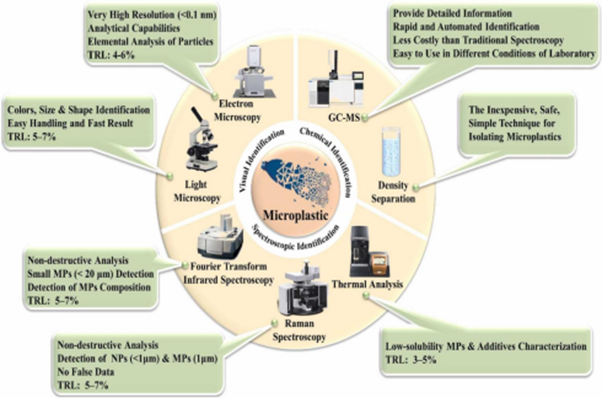
Explanation of the Research in Layperson’s Terms
The published paper deals with microplastics (5 mm to 0.1 μm in size) present ubiquitously in the natural environment including rivers, lakes, estuaries, atmosphere, oceans, soil/sediments, landfilling sites, and wastewater treatment plants. However, microplastics are also present in solid waste and studies related to their identification, characterisation, and quantification are very scarce. Therefore, to know more about microplastics and understand the sources of microplastics in solid waste, the extraction procedures, the identification, characterisation, and quantification techniques, and finally the advantages and disadvantages of each of the processes involved in the identification, characterization, and quantification techniques of microplastics, this study has been carried out.
Practical Implementation/ Social Implications of the Research
Waste-assisted plastic pollution is a major global concern with socio-economic, ecological, and health effects. The present study will make society understand the source of microplastics in solid waste along with its extraction procedures, identification, characterisation, and quantification techniques. If society is aware of the adverse effects of microplastics, then only one can think to protect the environment and human health.
Collaborations
The research has been carried out in collaboration with the University of Burdwan, the University of North Bengal, and CSIR-NEERI, Nagpur.
It is now widely recognised that microplastic pollution poses a serious threat to the environment on a global scale. Having originated from a diverse source, it has persisted in various ecosystems, thereby entering the trophic chain. It has contributed to microplastic pollution in the environment, e-waste being a major source of it. Hence, along with metal recovery from e-waste, regulating microplastic pollution is a growing interest. At this juncture, Dr Dutta’s future research is directed towards resource recovery processes, regulating microplastic pollution, risk assessment, life cycle assessment, and techno-economics analysis.
Continue reading → - IEEE SPS Winter School on Deep Learning for Image Restoration and Computer Vision January 6, 2023
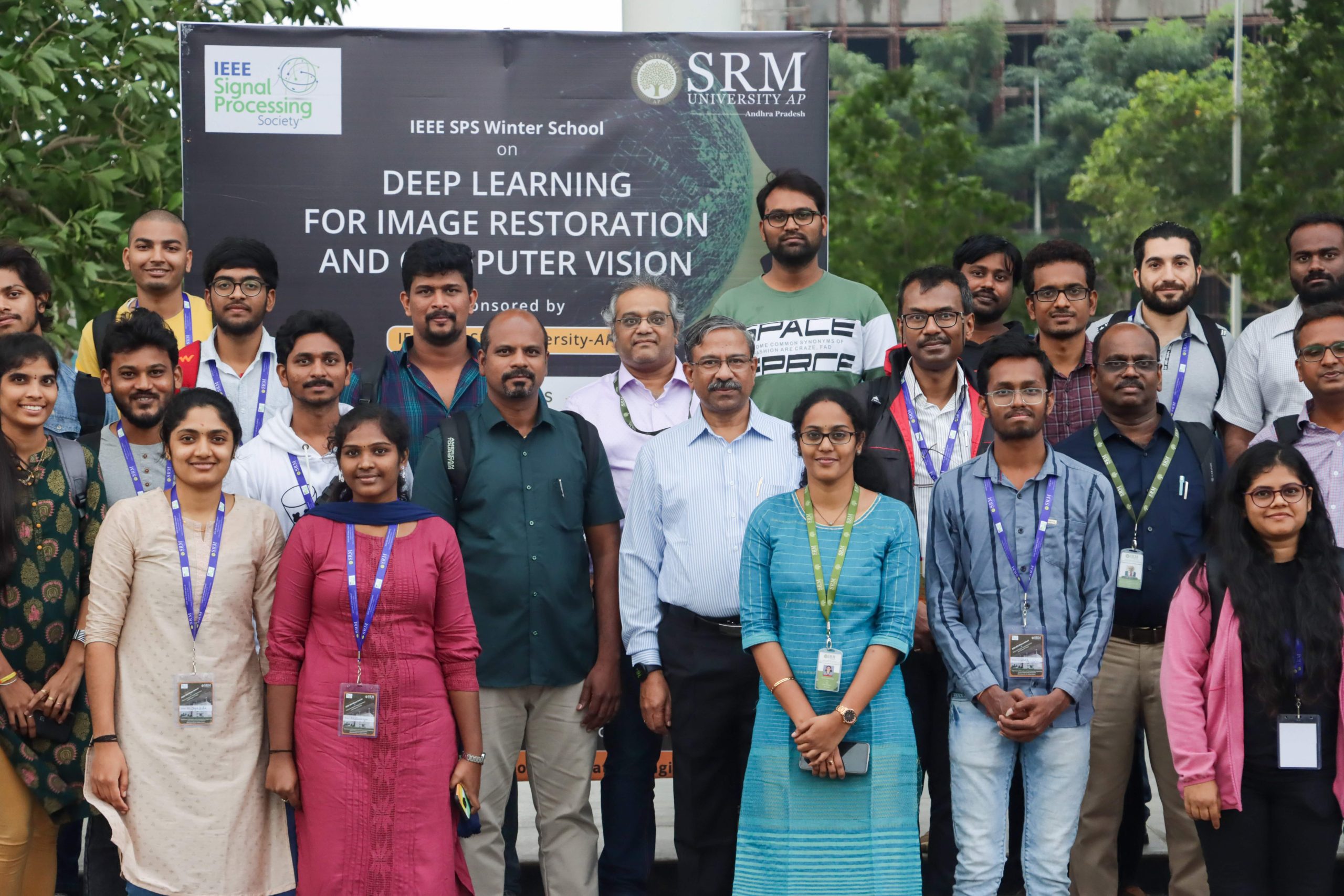 SRM University-AP hosted the IEEE SPS Winter School on Deep Learning for Image Restoration and Computer Vision from December 5 to 10, 2022. The six-day conference organised by the Department of Electronics and Communication Engineering was inaugurated by the honourable Pro-Vice-Chancellor of SRM University-AP, Prof. D Narayana Rao. Expert talks by renowned academicians from the University of Dayton, USA; University of Bath, UK; IIT Hyderabad; IISc Bangalore; IIIT Hyderabad; DA-IICT etc., were the highlights of the conference.
SRM University-AP hosted the IEEE SPS Winter School on Deep Learning for Image Restoration and Computer Vision from December 5 to 10, 2022. The six-day conference organised by the Department of Electronics and Communication Engineering was inaugurated by the honourable Pro-Vice-Chancellor of SRM University-AP, Prof. D Narayana Rao. Expert talks by renowned academicians from the University of Dayton, USA; University of Bath, UK; IIT Hyderabad; IISc Bangalore; IIIT Hyderabad; DA-IICT etc., were the highlights of the conference.Prof. Sumantra Dutta Roy from IIT Delhi, a well-acclaimed researcher in computer vision and machine learning, joined on the last day of the conference, Saturday, December 10, 2022, for a lecture on Biometrics and Medical Informatics. The discourse focused on the speaker’s struggles to come to terms with concepts which have comparatively little physical significance in terms of mathematical rigour or algorithmic efficiency but have the potential to produce hitherto unseen levels of startling results. The talk concluded with some applications of deep architectures and a few problems in biometrics and medical informatics.
The event was funded by IEEE and guided by the IEEE Guntur subsection and Hyderabad Section. Hands-on sessions were also conducted at the conference. Faculty, researchers, and students from various universities around the map participated in the insightful sessions. The event organisers were Prof. Jiji CV and Assistant Professor Dr Sateeshkrishna Dhuli of the Department of Electronics and Communication Engineering, SRM University-AP.
Continue reading → - Young Researcher Award 2022 January 2, 2023
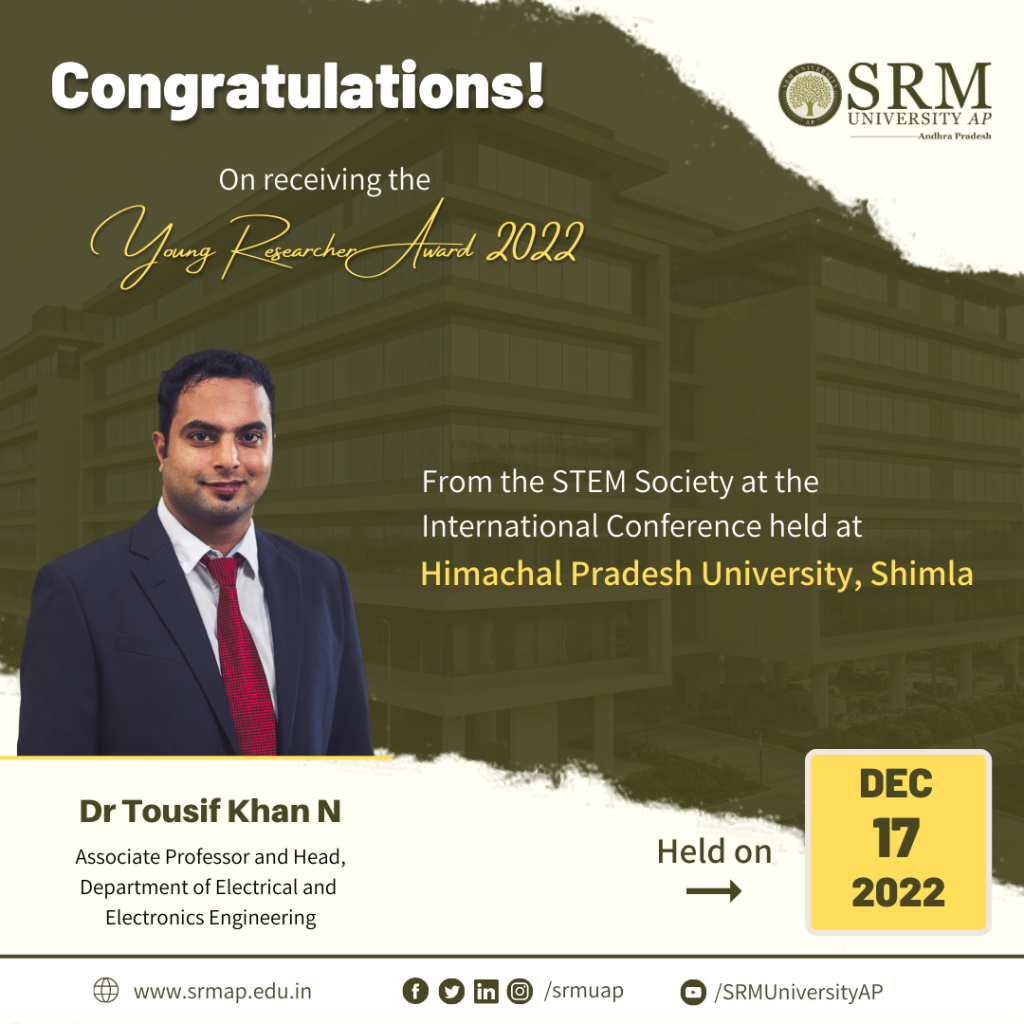
Dr Tousif Khan, Associate Professor and Head, Department of Electrical and Electronics Engineering has been awarded the “Young Researcher Award 2022” by the STEM Society at the International Conference organised at Himachal Pradesh University, Shimla on December 17, 2022. The basic purpose of the STEM-RS is to bring together Researchers, Academicians, Industrialists and Experts from different parts of the country and the world, to exchange knowledge and breakthrough ideas at a common platform by organising national and international events such as Conferences, Seminars and Workshops that unite the Science, Technology, Engineering and Management for the empowerment of research and development.
Continue reading → - Aadigyan-Indian Immersion Programme for Students of UTP Malaysia December 28, 2022
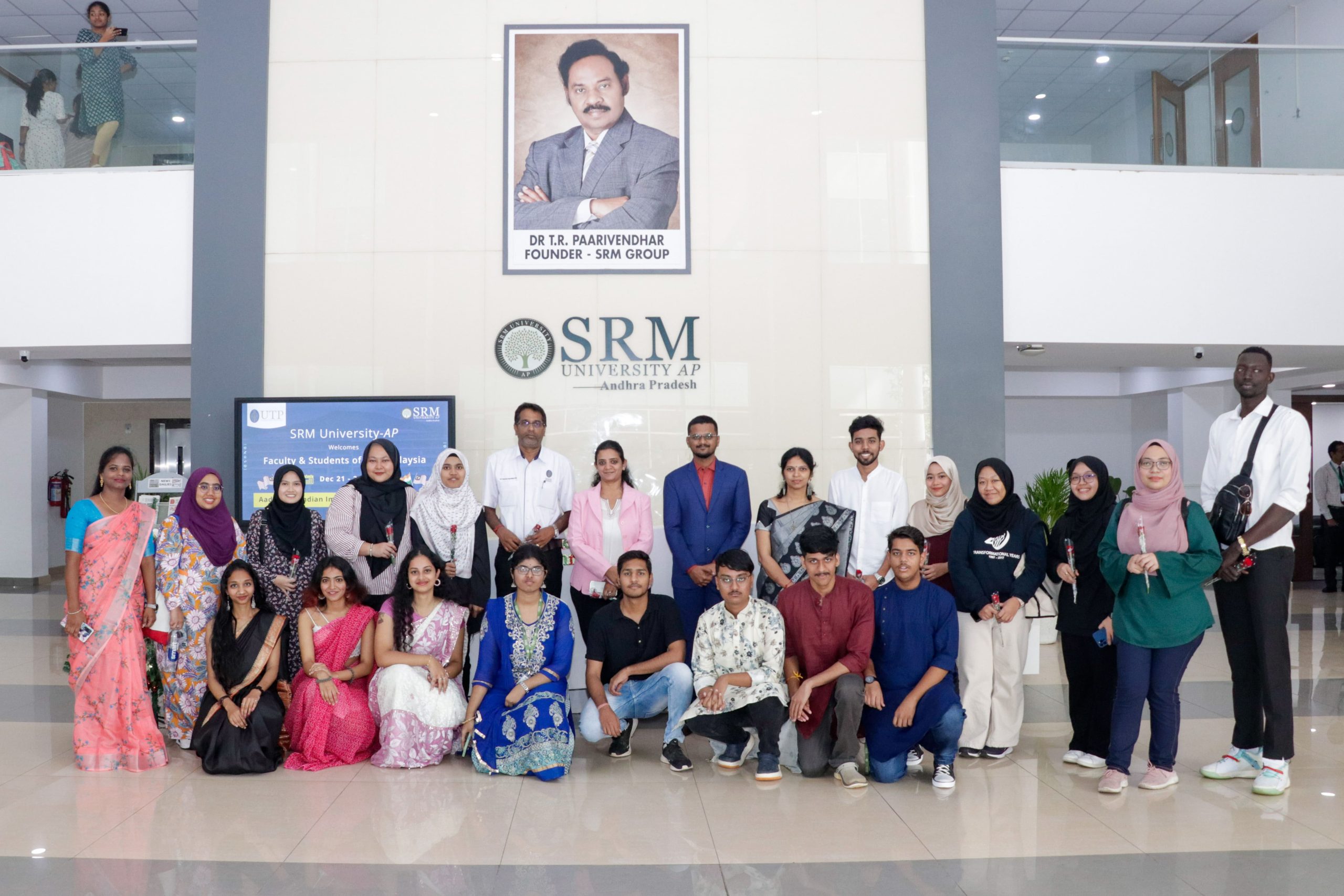 SRM University-AP welcomed the students and faculty of the Universiti Teknologi PETRONAS (UTP), Malaysia, to the rich cultural landscape of India through the Aadigyan-Indian Immersion programme 2022. The one-week-long programme conducted by the Directorate of International Relations and Higher Studies was inaugurated by the honourable Vice Chancellor of SRM University-AP, Prof. Manoj K Arora. Aadigyan is a flagship initiative of the university to promote India’s cultural and knowledge traditions.
SRM University-AP welcomed the students and faculty of the Universiti Teknologi PETRONAS (UTP), Malaysia, to the rich cultural landscape of India through the Aadigyan-Indian Immersion programme 2022. The one-week-long programme conducted by the Directorate of International Relations and Higher Studies was inaugurated by the honourable Vice Chancellor of SRM University-AP, Prof. Manoj K Arora. Aadigyan is a flagship initiative of the university to promote India’s cultural and knowledge traditions.Dr Naga Swetha Pasupuleti, Associate Director of the Directorate of International Relations and Higher Studies, received the international students at the grand inaugural ceremony of the programme. Students participated in various short courses on Data Analysis, Samaj Seva, the Art of Negotiation & Digital Marketing offered by the Paari School of Business. They also got to visit the famous landmarks of Vijayawada, such as the Dhyana Buddha statue, Prakasham Barrage, Kondapalli, etc. The traditional toy-making practice enticed the Malaysian student cohort.
Students interacted with many industry experts as they visited Infosys Gachibowli, Hyderabad campus, which gave them insights regarding the current trends and new technologies. The programme also included interaction with the 160+ International students of SRM AP from more than 29 countries over RRR Movie Screening and Gala Night. The programme ended on December 26, 2022, with a valedictory session and facilitating faculty and students of UTP Malaysia.
Continue reading → - Industrial Visit to MEIL December 27, 2022
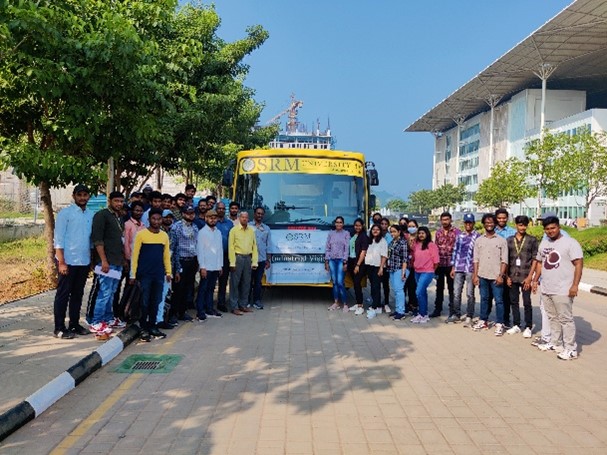
The Department of Civil Engineering has organised an industrial visit to Megha Engineering & Infrastructure Limited (MEIL) for engineering students to harbour them with the practical skillsets demanded by profession. The field visit was guided by senior engineers working on respective sites and co-ordinated by the faculty.
Project: Six-Laning of Vijayawada Bypass from Chinna Autupalli (Design Ch. 0.000) to Gollapudi (Design Ch. 30.000) Section of NH-16
Construction Company: Megha Engineering & Infrastructures Limited (MEIL)
Visit Highlights:
- Safety training by MEIL
- Quality Control Lab tour
- Soil, Aggregate, Bitumen, and Cement Concrete Testing
- Quality Control Aspects
- Batching Plant visit
- WMM and Concrete batching plants
- Site Tour
- Earthworks, Embankment, and WMM Construction
Coordinating faculty: Dr A Uma Maheswar
Continue reading → - Industry Visit for Hands-on Exposure December 27, 2022
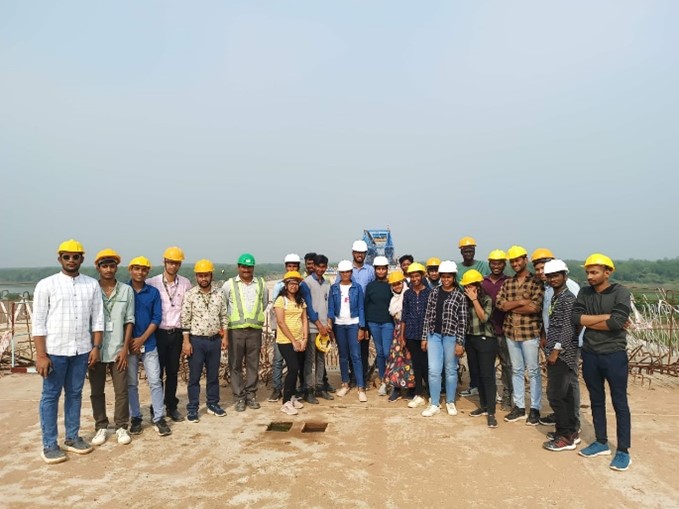
The Department of Civil Engineering of SRM University-AP conducted the second industrial visit for the Civil Engineering students of all semesters on November 30, 2022.
Details of the industrial site
An 18-kilometre stretch bridge over the Krishna River in the Chinakakani-Gollapudi highway is under construction jointly by the Adani group and Navayuga Engineering Company Limited. Hands-on practical insight was provided by experienced site Engineers on the topic of the post-tensioned precast bridge and the launching arrangement of each precast segment using advanced technological equipment. Students were also exposed to the different units of the site (i.e., the Safety class was delivered by the site officials, the Concrete batching plant, Quality control laboratories, and the Casting yard of the precast units).
Coordinating faculty: Dr Nishant Sharma and Dr Arijit Saha
Continue reading → - Estimating ACEs among Young Adults in Kashmir December 26, 2022
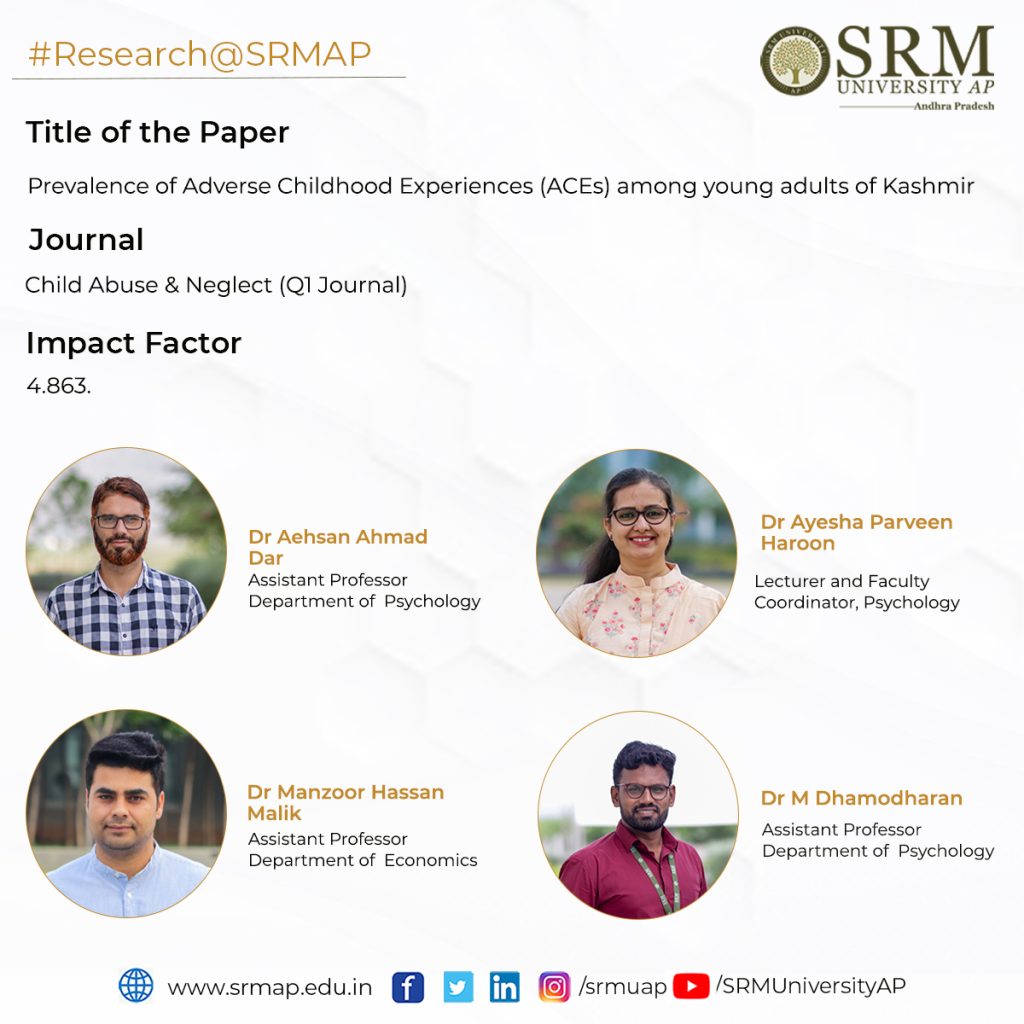
The Faculty of Psychology and Economics have jointly published a paper titled “Prevalence of Adverse Childhood Experiences (ACEs) among young adults of Kashmir” in the Q1 Journal Child Abuse & Neglect, having an impact factor of 4.863. Dr Aehsan Ahmad Dar, Assistant Professor, Department of Psychology; Dr Manzoor Hassan Malik, Assistant Professor, Department of Economics; Dr Ayesha Parveen Haroon, Lecturer, Department of Psychology; Dr Dhamodharan M, Assistant Professor, Department of Psychology have worked on interpreting the emotional constraints that are harboured among the young adults experiencing the adversities in turbulent Kashmir.
Abstract
The present study estimated the prevalence of ACEs among young adults studying in the colleges and universities of Kashmir, India. Findings disclosed that 15.4 % of the students reported high exposure to ACEs, 13.4% of the participants reported high exposure to ACEs, 26.3 % of the sample reported moderate exposure to ACEs, 33.0 % of the youth reported low exposure to ACEs and 11.8 % of the respondents reported no exposure to ACEs. The prevalence of ACEs was found to be 88.2 % (females: 82.7 % and males: 90.8 %) with a mean of 4.72 adverse events during childhood. The ACEs with the highest level of prevalence were “often or very often insulted or put down” (49.8 %), followed by “often or very often hurt physically” (47.6 %), “often or very often pushed, grabbed, or slapped” (41.6 %), “lived with a mentally ill household member” (28.3%), “touched or sexually fondled” (25.3 %),” household member being into the prison” (25.0%) and “witnessed father or mother being pushed, grabbed, slapped, or had something thrown at them” (24.0%).
Practical Implementation of the Research
The findings of the study will serve as a reliable source for healthcare professionals, policymakers and NGOs to better understand the impact of ACEs on the health and well-being of individuals. Since ACEs are associated with several immediate and long-term health hazards, therefore, necessary efforts in this direction are suggested to advocate the early targeted intervention to reduce ACEs and their impact as well as design effective measures to improve the health and well-being of young adults, thereby reducing the development of physical and mental disorders.
Collaborations
- Prof. Sibnath Deb, Rajiv Gandhi National Institute of Youth Development, Sriperumbudur, Tamil Nadu, India.
- Dr Manzoor Hassan Mali, Department of Economics, SRM University-AP, Andhra Pradesh, India
- Prof. Waheeda khan, Department of Clinical Psychology, Faculty of Behavioural Sciences, Shree Guru Gobind Singh Tricentenary University, Budhera, Gurugram, Delhi-NCR, India.
- Dr Ayesha Parveen Haroon, Department of Psychology, SRM University-AP, Andhra Pradesh, India
- Dr Amra Ahsan, Department of Clinical Psychology, Faculty of Behavioural Sciences, Shree Guru Gobind Singh Tricentenary University, Budhera, Gurugram, Delhi-NCR, India
- Dr Farhat Jahan, Department of Clinical Psychology, Faculty of Behavioural Sciences, Shree Guru Gobind Singh Tricentenary University, Budhera, Gurugram, Delhi-NCR, India
- Dr Bushra Sumaiya, Faculty of Education, Shree Guru Gobind Singh Tricentenary University, Budhera, Gurugram, Delhi-NCR, India.
- Shaheen Yawar Bhat, Department of Physiology, All India Institute of Medical Sciences, New Delhi, India.
- Dr Dhamodharan M, Department of Psychology, SRM University-AP, Andhra Pradesh, India
- Mohamad Qasim, Independent Researcher
The research cohort plans to study youth’s mental health and ascertain its risk and protective factors. About 19% of the world’s children live in India, which constitutes 42% of the total Indian population, and nearly half of these children are vulnerable and need care and protection. Due to various traumatic experiences, stress has increased among young people resulting in various physical and mental disorders.
The research will focus on the pathogenic (post-traumatic stress disorder, depression, anxiety, somatisation) and salutogenic (post-traumatic growth and resilience) consequences of trauma to help the youth withstand adverse experiences and develop psychological competence. The research will provide insights into the mental health of youth that would be helpful for the administration, policymakers, and other voluntary organisations to understand effective ways to devise and implement the best intervention programs for maximising mental health protective factors and minimising its risk factors.
Continue reading → - Employing Information Entropy in Determining the Water Body’s Health Status December 26, 2022
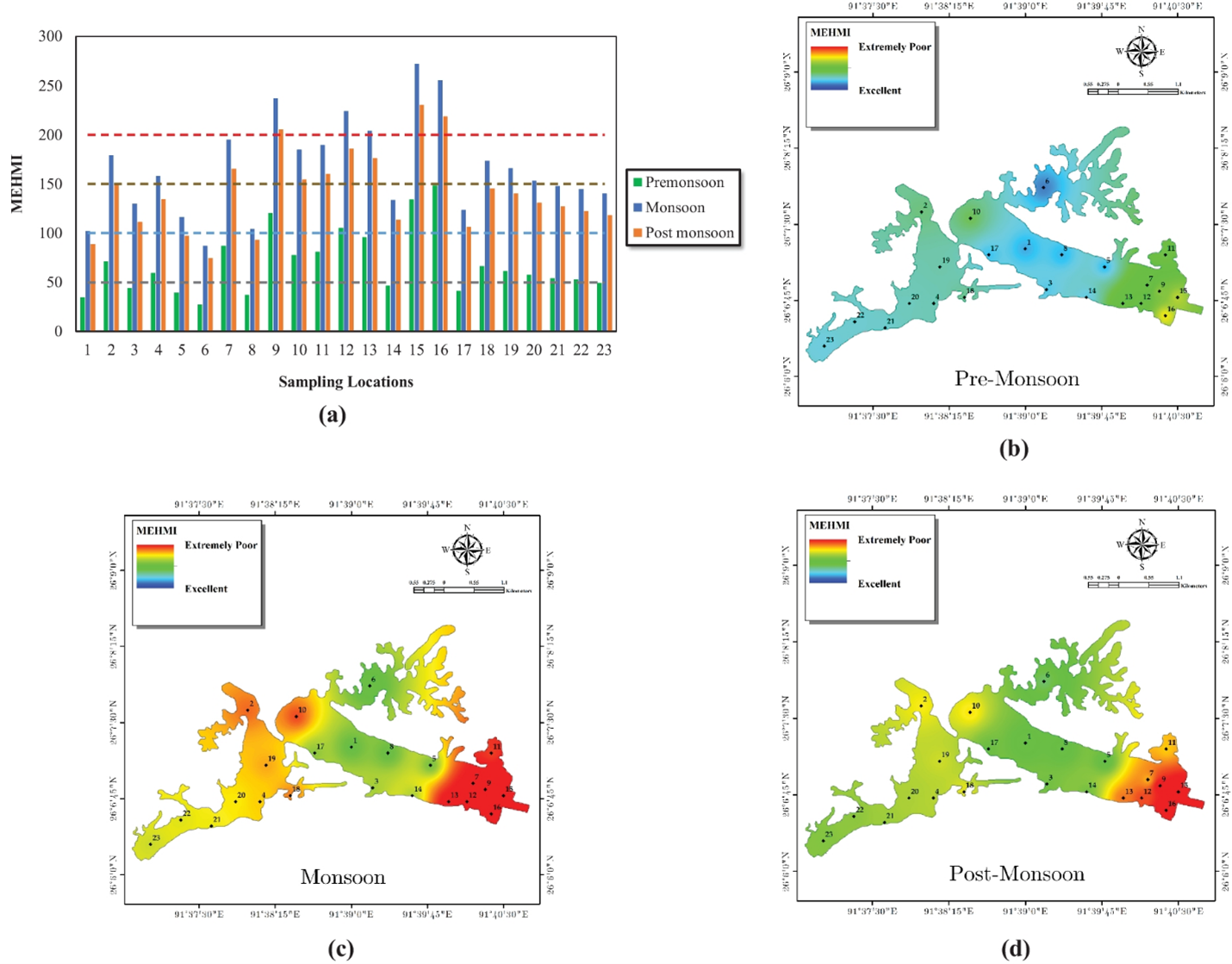 The global population is changing drastically, increasing at an alarming rate of more than 80 million per year. This growing population has led to enormous pressure on land-use patterns and, to a greater extent, the natural ecosystems, especially water bodies. The water bodies are getting depleted considerably, and their quality is significantly deteriorating. Assistant Professor Dr Siddhanth Dash from the Department of Civil Engineering has published the paper Development of function-specific indices for assessing water quality based on the proposed modifications of the expected conflicts on existing information entropy weights in the journal Environmental Monitoring and Assessment with an impact factor of 3.307. He has collaborated with Dr Ajay S Kalamdhad, a Professor at the Department of Civil Engineering, IIT Guwahati, for the research.
The global population is changing drastically, increasing at an alarming rate of more than 80 million per year. This growing population has led to enormous pressure on land-use patterns and, to a greater extent, the natural ecosystems, especially water bodies. The water bodies are getting depleted considerably, and their quality is significantly deteriorating. Assistant Professor Dr Siddhanth Dash from the Department of Civil Engineering has published the paper Development of function-specific indices for assessing water quality based on the proposed modifications of the expected conflicts on existing information entropy weights in the journal Environmental Monitoring and Assessment with an impact factor of 3.307. He has collaborated with Dr Ajay S Kalamdhad, a Professor at the Department of Civil Engineering, IIT Guwahati, for the research.Explanation in Layperson’s Terms
Waterbody contamination is attributed to a various number of reasons: primarily anthropogenic contamination, such as extensive industrial (small as well as large-scale) discharges, leaching of chemical fertilisers from the agricultural grounds, the release of toxic chemicals such as heavy metals and pesticides, and discharge of untreated sewage water from residential complexes (primary constituents being nutrients such as N, P, and K and pathogens). These depletions of the natural water systems have affected the entire aquatic ecosystem. Indexing tools have proved to be the most significant of all the techniques developed. Water quality indices (WQIs) are mathematical representations of a particular body’s water quality, providing a singular numeric denomination reflecting its health status. Specific indices are unique indices which provide information regarding the overall anthropogenic contamination and are broadly target-specific. Over the years and extensive studies carried out worldwide, while multivariate statistics have proved its reliability, the existing approach of using entropy weights suffers from various ambiguities.
Dr Dash’s study addresses vital issues relating to the existing use of entropy weights in WQIs, thus proposing a novel approach to employing information entropy in determining the water body’s health status.
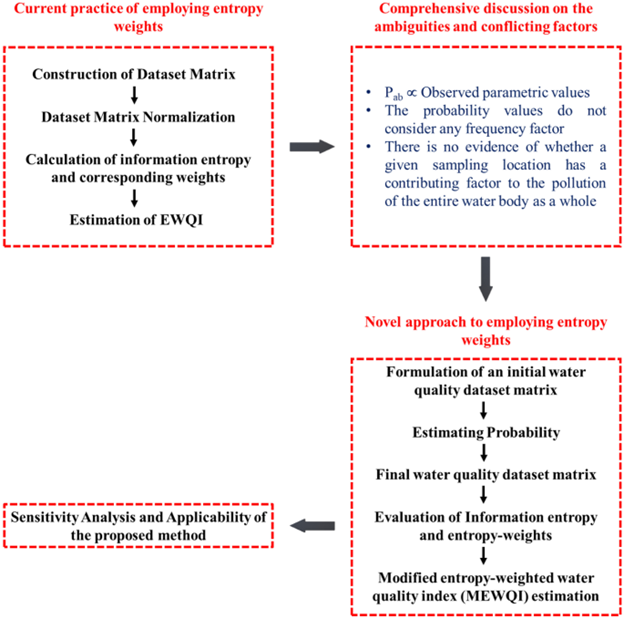 Practical Implementation and Social Implication of the Research
Practical Implementation and Social Implication of the ResearchWater quality assessment remains paramount when providing safe and potable water as per the United Nations Sustainable Development Goals (SDGs). This study’s results would pave the way for a more reliable and time-conserving manner of assessing water quality and a broader context and health status of a water body that will help protect and preserve different water bodies globally. The present study will also benefit the researchers and policymakers in making sustainable decisions toward restoring water bodies and preventing them from plausible future deterioration.
Working on sustainable and effective treatment techniques to remediate emerging contaminants in aquatic ecosystems is the future research plan of Dr Dash.
Abstract
Water serves numerous purposes besides drinking, such as irrigation and industrial usage. Most water quality indices developed have primarily focused on drinking water quality. However, assessing other functionalities of water bodies is also equally essential. The present study proposes a novel technique to measure water quality for two highly specific water use, i.e., assessing heavy metal contamination and irrigation suitability. The ambiguities in the current practice of entropy weights were identified, and a novel method was proposed, considering a three-dimensional approach instead of the conventional two-dimensional procedure. Weights to different parameters were assigned based on the probability estimates obtained from the frequency of observed values within acceptable limits. The proposed method’s reliability, correctness, and applicability were tested using Deepor Beel’s water quality dataset. Results were highly consistent with the experimental values and correlated well with other established methods. The efficacy of the method was determined by employing sensitivity analyses. Both indices showed high reliability and correctness, as no single parameter was found to be highly sensitive compared to others. Therefore, the proposed methodology proved to be the most reasonable, incorporating all the factors required for a reliable water quality monitoring program.
Citation of the Article
Dash, S., & Kalamdhad, A. S. (2022). Development of function-specific indices for assessing water quality based on the proposed modifications of the expected conflicts on existing information entropy weights. Environmental Monitoring and Assessment, 194(12), 1-17.
Continue reading → - A Critical Analysis of Faith-based Healing December 26, 2022
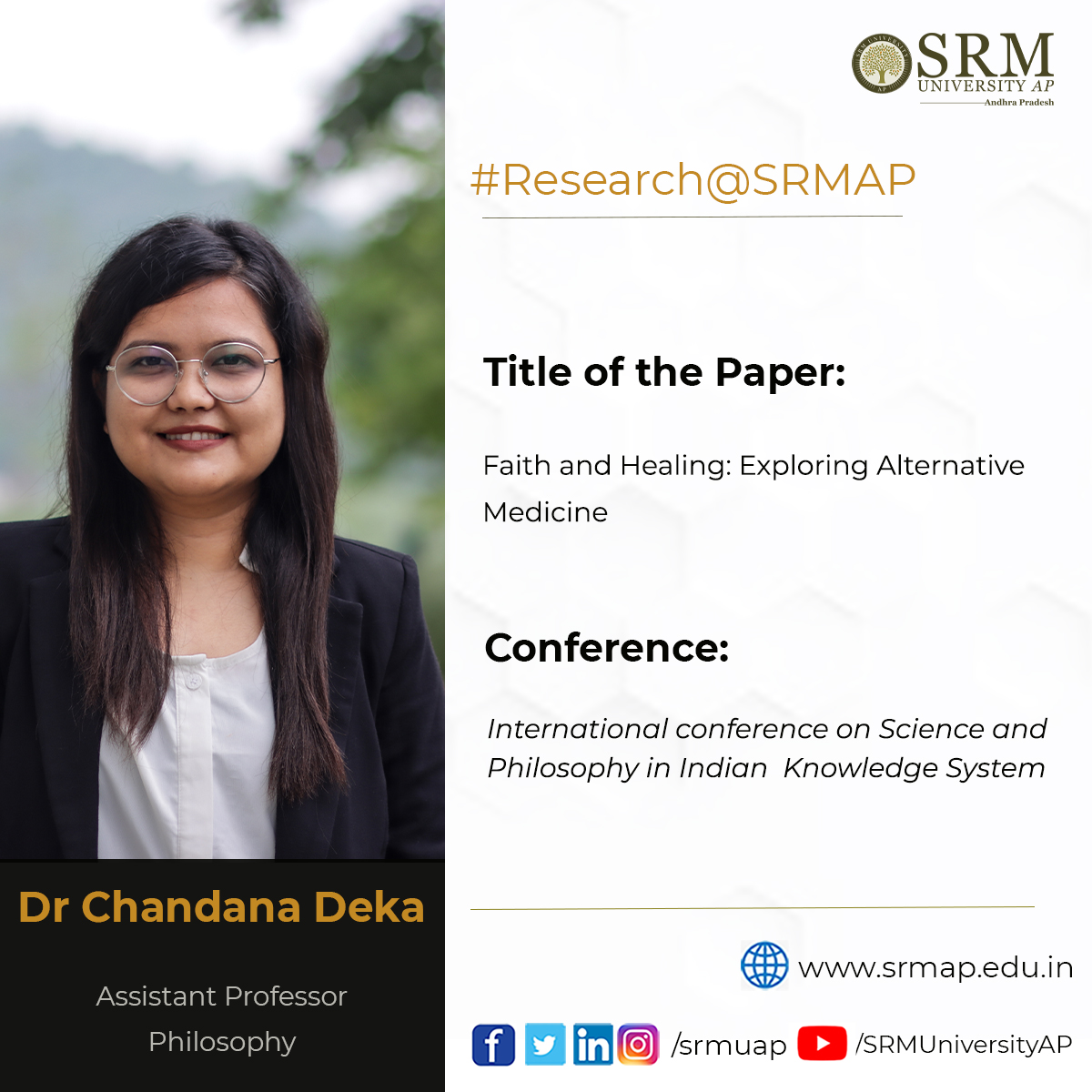 Dr Chandana Deka from the Department of Liberal Arts presented a paper titled Faith and Healing: Exploring Alternative Medicine at the international conference on Science and Philosophy in Indian Knowledge System organised by the Institute for Science and Spirituality Delhi in partnership with Noida International University IKS Division, Ministry of Education, Govt. of India from December 17 to 18, 2022. Her paper has also been published as part of conference proceedings.
Dr Chandana Deka from the Department of Liberal Arts presented a paper titled Faith and Healing: Exploring Alternative Medicine at the international conference on Science and Philosophy in Indian Knowledge System organised by the Institute for Science and Spirituality Delhi in partnership with Noida International University IKS Division, Ministry of Education, Govt. of India from December 17 to 18, 2022. Her paper has also been published as part of conference proceedings.Abstract
Fideism is a school of thought that gives importance to faith as against reason in matters related to religion. Fideism is defined as “the view that religious belief systems are not subject to rational evaluation” (Peterson, 2003). But matters related to religion do not confine only to the transcendental aspects of religion, it also impacts and influences the socio-cultural and ethical aspects (Durkheim, 1912). In this paper, the researcher discusses one such socio-cultural aspect of religious faith, that is, religious healing. Faith-based healing is often considered one form of alternative medicine (Andrew Village, 2005). In this paper, she explores this faith-based healing and contends that not all forms of faith-based healing can be appropriated. She tries to give a theoretical justification as to which forms of faith-based healing can be adopted and which need not be. The research is analytical and critical in nature based on materials that include books and articles written on fideism and different religious Texts.
Continue reading →


